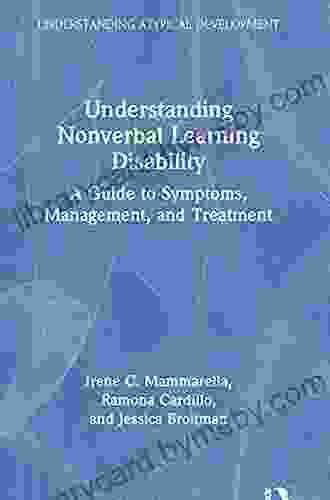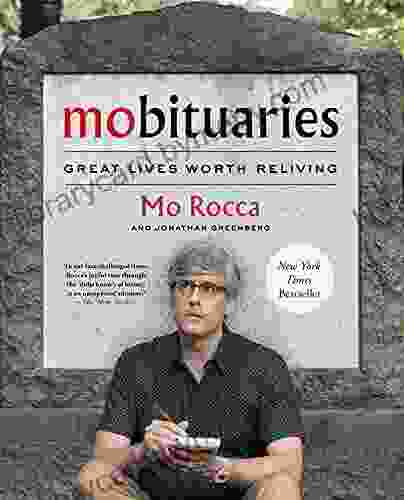Navigating the Complexities: A Comprehensive Guide to Symptom Management and Treatment for Atypical Development

Atypical development refers to a range of conditions that affect an individual's cognitive, social, emotional, and physical development in ways that differ from typical expectations. These conditions can include autism spectrum disFree Download (ASD),attention-deficit/hyperactivity disFree Download (ADHD),intellectual disability, learning disFree Downloads, and sensory processing disFree Download.
Individuals with atypical development may experience a wide range of symptoms, including:
- Difficulty with social interactions
- Repetitive or restricted behaviors
- Problems with communication
- Sensory sensitivities
- Difficulty with attention and focus
- Learning challenges
- Behavioral problems
These symptoms can have a significant impact on an individual's daily life, making it difficult to participate in school, social activities, and other important aspects of life.
4.7 out of 5
| Language | : | English |
| File size | : | 5868 KB |
| Screen Reader | : | Supported |
| Print length | : | 224 pages |
| X-Ray for textbooks | : | Enabled |
Effective symptom management is essential for individuals with atypical development to reach their full potential. By addressing the underlying causes of symptoms and developing strategies to manage them, individuals can improve their overall functioning and quality of life.
There is no one-size-fits-all approach to symptom management. The best approach will vary depending on the individual's specific needs and challenges. However, some general principles of effective symptom management include:
- Early intervention: Starting treatment early can help to prevent symptoms from becoming more severe and can improve long-term outcomes.
- Individualized treatment: Treatment plans should be tailored to the individual's specific needs and goals.
- Multidisciplinary approach: A team of specialists, such as doctors, therapists, and educators, can work together to provide comprehensive care.
- Family involvement: Families play a vital role in supporting individuals with atypical development. They can help to implement treatment plans, provide emotional support, and advocate for their loved ones.
A variety of treatment options are available for individuals with atypical development. These options may include:
- Medication: Medication can be used to treat a variety of symptoms, such as anxiety, depression, ADHD, and seizures.
- Therapy: Therapy can help individuals to develop coping mechanisms, improve social skills, and manage their symptoms.
- Special education: Special education services can provide individuals with the support and resources they need to succeed in school.
- Assistive technology: Assistive technology can help individuals with atypical development to overcome challenges with communication, mobility, and other daily living activities.
The best treatment option for an individual will depend on their specific needs and challenges. It is important to work with a team of specialists to develop a comprehensive treatment plan that addresses all of the individual's needs.
Atypical development can be a challenging condition, but it is important to remember that there is hope. With effective symptom management and treatment, individuals with atypical development can reach their full potential and live fulfilling lives.
This guide has provided a comprehensive overview of symptom management and treatment for atypical development. For more information, please consult with a healthcare professional or visit the following resources:
4.7 out of 5
| Language | : | English |
| File size | : | 5868 KB |
| Screen Reader | : | Supported |
| Print length | : | 224 pages |
| X-Ray for textbooks | : | Enabled |
Do you want to contribute by writing guest posts on this blog?
Please contact us and send us a resume of previous articles that you have written.
 Book
Book Novel
Novel Page
Page Chapter
Chapter Text
Text Story
Story Genre
Genre Reader
Reader Library
Library Paperback
Paperback E-book
E-book Magazine
Magazine Newspaper
Newspaper Paragraph
Paragraph Sentence
Sentence Bookmark
Bookmark Shelf
Shelf Glossary
Glossary Bibliography
Bibliography Foreword
Foreword Preface
Preface Synopsis
Synopsis Annotation
Annotation Footnote
Footnote Manuscript
Manuscript Scroll
Scroll Codex
Codex Tome
Tome Bestseller
Bestseller Classics
Classics Library card
Library card Narrative
Narrative Biography
Biography Autobiography
Autobiography Memoir
Memoir Reference
Reference Encyclopedia
Encyclopedia Bill Zarchy
Bill Zarchy Mayme Sevander
Mayme Sevander Jessica L Roberts
Jessica L Roberts Jorge Aguirre
Jorge Aguirre Mark Turley
Mark Turley Benj Pasek
Benj Pasek Beth Zasloff
Beth Zasloff David Martinez
David Martinez Betsy Dillard Stroud
Betsy Dillard Stroud Don Peri
Don Peri Bernard Kamoroff
Bernard Kamoroff Jeet Heer
Jeet Heer Bianca Schulze
Bianca Schulze Bill Mcdermott
Bill Mcdermott Tracey Taylor
Tracey Taylor Blake Boles
Blake Boles Bob Allcorn
Bob Allcorn Bob Hartman
Bob Hartman Ben Coes
Ben Coes David F Hendry
David F Hendry
Light bulbAdvertise smarter! Our strategic ad space ensures maximum exposure. Reserve your spot today!

 Eugene PowellImmerse Yourself in the Timeless Tales of the Bible: Illustrated Narratives...
Eugene PowellImmerse Yourself in the Timeless Tales of the Bible: Illustrated Narratives...
 Christian CarterThe Hunt for the Great Bear: A Thrilling Adventure into the Heart of the...
Christian CarterThe Hunt for the Great Bear: A Thrilling Adventure into the Heart of the... Marvin HayesFollow ·3.8k
Marvin HayesFollow ·3.8k Robbie CarterFollow ·7.7k
Robbie CarterFollow ·7.7k Jayson PowellFollow ·9.5k
Jayson PowellFollow ·9.5k Norman ButlerFollow ·7.2k
Norman ButlerFollow ·7.2k Henry David ThoreauFollow ·5.2k
Henry David ThoreauFollow ·5.2k Derrick HughesFollow ·18.3k
Derrick HughesFollow ·18.3k Truman CapoteFollow ·18.9k
Truman CapoteFollow ·18.9k David MitchellFollow ·18.7k
David MitchellFollow ·18.7k

 Ivan Cox
Ivan CoxSpeak With Ease: The Ultimate Guide to Public Speaking...
By Rupika Raj ...

 Jesus Mitchell
Jesus MitchellVulcan Forge: A Suspense Thriller that Will Keep You on...
Vulcan Forge is...

 Dashawn Hayes
Dashawn HayesThe Carteret Family Bob Martin: A Comprehensive Review
Bob Martin's...

 Owen Simmons
Owen SimmonsUnlock the World of Cultural Nuances with "The Global...
Embark on a Journey of...

 Ian McEwan
Ian McEwanConquer the Mountain: True Account of Catastrophe and...
In the heart of California's stunning...
4.7 out of 5
| Language | : | English |
| File size | : | 5868 KB |
| Screen Reader | : | Supported |
| Print length | : | 224 pages |
| X-Ray for textbooks | : | Enabled |










